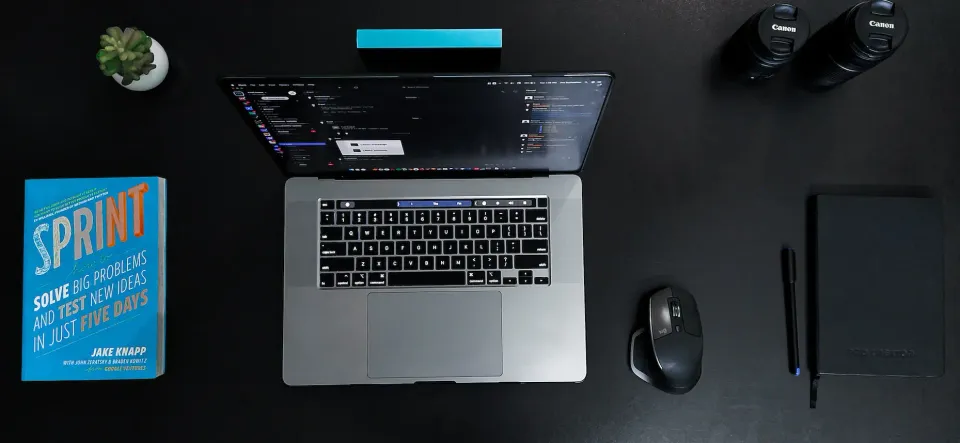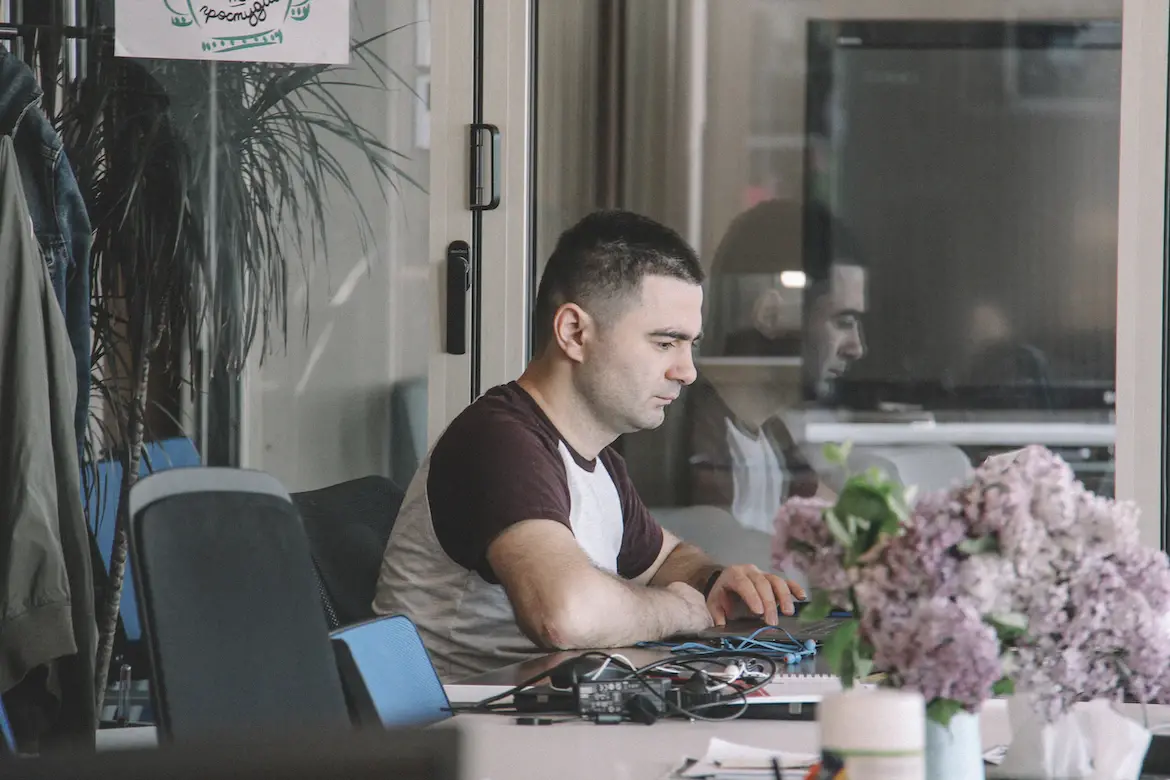Best Skills To Put On a Resume To Land Your Dream Remote Job

We know remote jobs have become a popular choice for both employers and job seekers. It’s an attractive option for both parties as it offers:
- The freedom to work from anywhere.
- The potential for increased work-life balance.
- And access to a global talent pool.
However, with the rising popularity of remote work, competition for remote positions has also intensified.
That means to stand out among the sea of applicants, it's essential to craft a compelling resume that highlights the skills employers are seeking in remote workers.
Because your resume is your ticket to an interview, and for remote positions, it holds even greater significance.
Mention These Skills on Your Resume To Land Your Dream Remote Job
As employers may not have the opportunity to meet you in person, they heavily rely on your resume to gauge your suitability for remote work. So, this is where you have to demonstrate your ability to thrive in a virtual work environment and effectively contribute to remote teams.
Employers look for a combination of skills that align with the specific job requirements.
What are these skills? Well, that’s exactly what we’ll dig into today!
General Skills to Include on Your Resume

General skills are the most important soft skills that employers look for in a resume.
These skills are especially important in a remote work environment, as successful utilization of such soft skills will catapult a remote company’s potential.
You usually become better at these skills with experience. But even if you don’t have extensive experience making use of these skills, it’ll come in handy if you mention them in your resume.
Don’t lie, though. If you’re really bad at any of these skills, just ignore them for now and start working on becoming better at it.
1. Communication Skills
‘Communication’ in remote work usually means your ability to understand the common language, your fluency, your ability to articulate ideas, etc.
And clear and effective communication is the backbone of successful remote collaboration. This could be:
- Written communication in emails & project updates.
- Or verbal communication in virtual meetings.
Your ability to convey information concisely and with clarity is paramount when working with a remote team. So, if you think you have great communication skills, mention that on your resume.
2. Time Management Skills
Remote work demands a high level of self-discipline and time management. Employers seek individuals who can:
- Manage their schedules efficiently.
- Prioritize tasks.
- And consistently meet deadlines.
This ultimately comes down to efficiency. Remote work environments often lack the structured routines of a traditional office, making self-managed schedules a necessity.
Demonstrating your time management skills reveals your capacity to organize and optimize your work hours efficiently. This attribute reassures employers that you can maintain a balanced workflow, allowing you to allocate time effectively to various tasks and responsibilities.
So, if you can put across the message of how efficient you are at work, you’ll have double the value than most other applicants.
3. Problem-Solving and Critical Thinking Skills
Remote work settings often require independent decision-making and problem-solving. Mainly because you won’t have easy access to your colleagues and superiors all the time.
Hence, companies will value applicants that can think and act well at any given time.
A good way to mention this is to highlight instances where you have proactively identified and resolved challenges in past roles.
4. Attention to Detail
In a remote work environment, there's little room for oversight. And attention to detail is especially important to creative tasks like:
- Writing.
- Designing.
- Photography, etc.
If you’re applying for jobs in any of such creative domains, NEVER forget to showcase your keen attention to detail and accuracy in your work. This assures potential employers of your reliability.
5. Adaptability and Flexibility
Remote work arrangements can change rapidly, and employers seek candidates who can adapt seamlessly to new technologies, work processes, and shifting priorities.
There is little adaptability required when working in the office, but if you’re working remotely, you’ll need a great level of it!
Technical Skills to Include on Your Resume

What we have here are skills that one would need with digital tools.
Remote organizations function seamlessly with the help of a set of digital tools that they use on a daily basis.
This could be a communication app, a project management tool, or anything that makes a remote organization’s work easier or possible.
1. Remote Work Software and Tools
Never underestimate the digital tools out there. For any remote organization, these tools are their backbone. A remote organization literally wouldn’t function without them!
That’s why familiarity with remote work tools and software is essential to showcase your ability to work in virtual teams.
If you don’t have any experience with these tools, boot up your computer, play around with them, and get yourself familiarized. Most of them are free, so you can gain really valuable knowledge without spending a penny!
2. Digital Communication Tools
Highlight your proficiency in using various digital communication tools, such as Zoom, Google Meet, or Microsoft Teams, to ensure smooth and effective communication with remote team members.
And just like we said before, if you don’t have experience, get it!
3. Project Management Software
If you are applying for a project management role, emphasize your expertise in project management software that enables remote teams to plan, execute, and track projects efficiently.
Experience with project management software also comes in handy for other remote job roles, as you could still use your experience to seamlessly transition into a new remote job.
4. Cloud-based Storage and File-Sharing Systems
Remote teams heavily rely on cloud-based storage and file-sharing systems, such as:
- Google Drive.
- Dropbox.
- OneDrive, etc.
They allow seamless access to documents for all members in a remote organization.
If you have experience using them, mention them in your resume.
5. Video Conferencing Software
In the fast-paced and ever-changing world of remote work and virtual interactions, video conferencing software has emerged as a critical lifeline for professionals across the globe.
And in the absence of face-to-face interactions, video conferencing tools are crucial for:
- Remote meetings.
- Interviews.
- And client interactions.
Mentioning them will add great value to your resume! This will show the employer your adaptability, tech-savviness, and commitment to seamless communication.
Industry-Specific Skills to Include on Your Resume

We covered soft skills at the beginning of this blog post.
That means we can’t leave out the hard skills. These are the skills that you attain through learning and practice. Usually, when you’re applying for a remote job, one of these skills below would be the core requirement in the job description.
That basically means you have no luck in navigating the remote work world unless you have some sort of industry-specific or hard skill to include on your resume.
We’ll stop the rant here and get into the important part…
1. Programming Languages and Software for IT and Software Development Jobs
If you need to work in the IT sector or get into a software development job, the core requirement will be to have a good command of programming languages.
A few of the most in-demand programming languages are:
- JavaScript.
- Python.
- HTML, etc.
When you’re sending your resume to a job related to these skills, don’t forget to mention the programming languages and other related software you know.
2. Sales and Marketing Skills for Sales and Marketing Roles
If you are seeking remote sales or marketing positions, showcase your experience with CRM software, digital marketing tools, lead generation, sales analytics, etc.
Sales and marketing roles cover a really large domain, so you must put in everything you know related to it to stand out from the rest of the applicants.
Apart from these tools, you should also list down other digital marketing skills you know that are closely related to the core skill required, like:
- SEO.
- SMM.
- Copywriting, etc.
3. Graphic Design and Multimedia Software for Creative Roles
For creative remote jobs, emphasize your expertise in graphic design software like Adobe Photoshop, Illustrator, or video editing tools.
Because these tools are the backbone of graphic design and other creative skills. They’re like an artist’s canvas.
4. Customer Service and Support Software for Customer Service and Support Roles
For remote customer service positions, highlight your experience with customer service platforms, ticketing systems, and online chat tools.
Strategically mention how you were able to use these tools well in your past roles in the customer support domain.
5. Data Analysis and Reporting Tools for Data Analysis and Reporting Roles
If you aspire to work remotely in data analysis and reporting, demonstrate your proficiency in similar roles.
Mention your grasp of data analytics tools like Excel, Tableau, or programming languages like Python.
Showcasing Your Skills on Your Resume

As a bonus, we’d like to guide you on how you should showcase your skills on your resume.
You must not just throw a bunch of words together and call it a day. You need to think from the employer’s perspective and strategically craft your resume in a way that appeals to the person reading it.
This requires quite a bit of commitment, time, and a few neat tricks. Let’s look at them…
1. Prioritizing Relevant Skills Based on the Job Description
Each job posting is unique, and tailoring your resume to the specific requirements is essential.
Analyze the job description and prioritize the skills that closely align with the role.
Prioritizing relevant skills allows you to craft a customized narrative that resonates with the employer's needs. By placing the most relevant skills front and center, you grab the recruiter's attention from the outset and ensure they see you as an excellent fit for the position.
2. Including Specific Examples of How You Have Used Your Skills in Previous Roles
Back up your skills with concrete examples of how you applied them in your previous positions.
Describe:
- The challenges you faced.
- The actions you took.
- And the results you achieved.
Employers really want to see your previous experience in similar roles before they take the step towards hiring you.
If you possess REALLY similar experience, you’ll have a REALLY great chance of getting hired.
3. Quantifying Your Achievements to Demonstrate the Impact of Your Skills
Numbers and metrics add credibility to your achievements. Whenever possible, quantify your results to showcase the value you brought to your previous employers.
For instance, you could say, “I’ve led my previous team to increase sales by 30% and implemented cost-cutting measures that saved the company $100,000 annually.”
The secret is that quantified achievements possess the unique advantage of transcending industry barriers. Regardless of the field you're in, numbers speak a universal language.
4. Using Action Verbs to Showcase Your Skills in a Compelling Way
Start bullet points with strong action verbs to make your accomplishments more compelling. Action verbs convey a sense of proactivity and achievement.
These dynamic words inject vitality into your resume, captivating potential employers or clients from the get-go.
A few examples of powerful action words are:
- Orchestrated.
- Maximized.
- Transformed, etc.
Conclusion
Crafting a winning resume for remote job opportunities requires careful consideration of the skills you possess and the skills that employers seek.
If you manage to include the right mix of general skills essential for remote work and industry-specific technical skills, you position yourself as an ideal candidate for remote positions in your chosen field.
Make sure to tailor your resume for each application, providing specific examples of how you have applied your skills in previous roles to demonstrate your potential value to the prospective employer.
Always keep in mind that your resume is just the first step.
So, it wouldn’t hurt to follow up with a compelling cover letter that showcases your passion for remote work and ensures your potential employer knows why you are the best fit for the role.
And on a final note, continue to upskill and stay updated with the latest trends in your industry to remain competitive in the ever-evolving world of remote work.
Dedication, skills, and a well-crafted resume is the right mix. If you get it right, your dream remote job will be well within reach.
Good luck!


